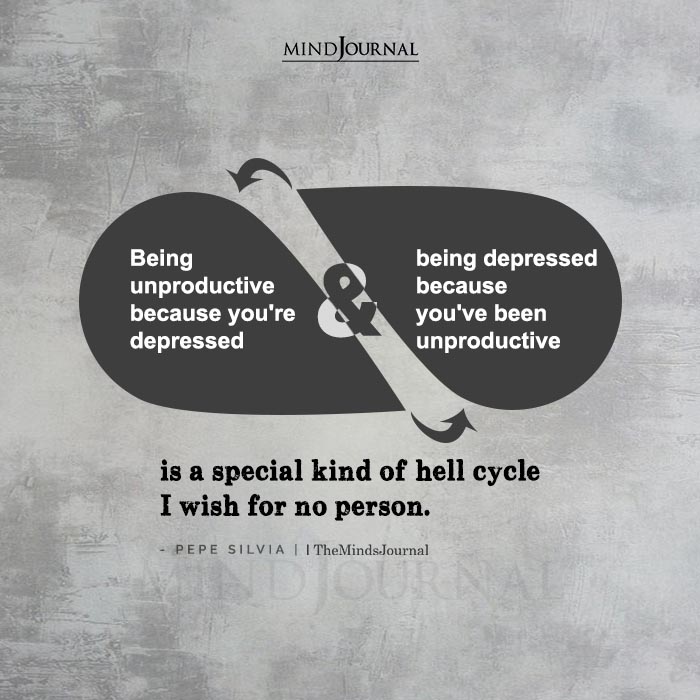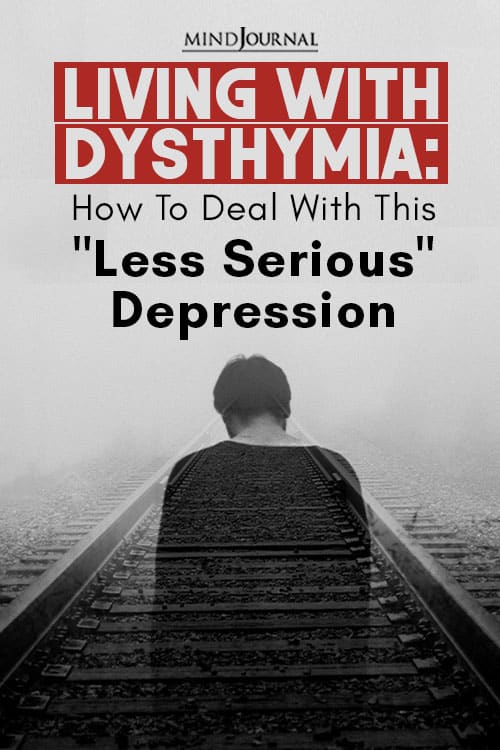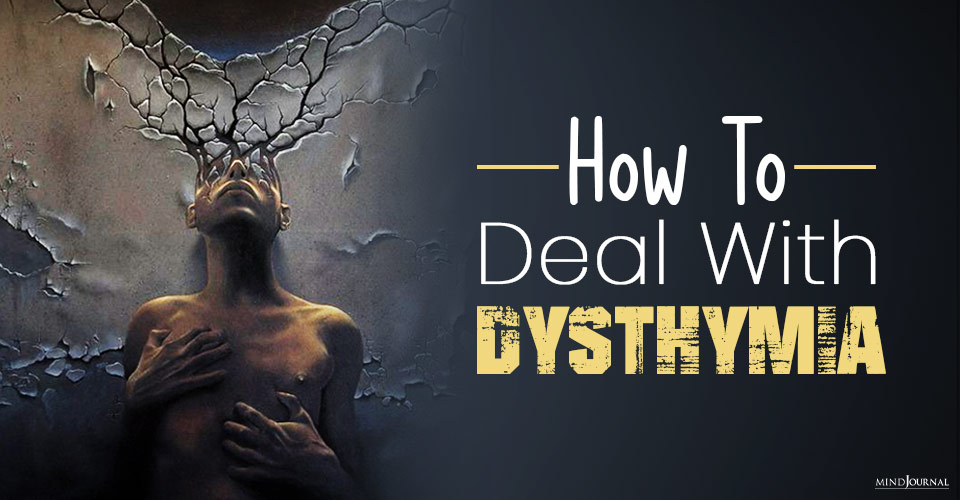Living with dysthymia or persistent depressive disorder on a day-to-day basis is challenging, and people who suffer from this can vouch for that. It might not be as serious as clinical depression, but it can be mentally and emotionally debilitating no less.
Dysthymia is a low-grade depression that comes and goes but can last a lifetime. Usually, it’s not the kind of depression that keeps you in bed for weeks or makes you want to kill yourself, but it can leave you feeling that you’d be better off if you weren’t here.
Living With Dysthymia: What Does Dysthymis Feel Like?
For people fighting with dysthymia, any moments of boredom or confusion usually result in self-blame and feelings of distress, until the next activity that requires critical thinking arises.
This kind of depression just sort of pops up, like an annoying computer message, and your psyche has the same reaction: “I need to get rid of this annoying thing/thought.” Taking any kind of action is a tried-and-true method of distraction and usually gets your mind off of your troubles, at least for a while.
Unfortunately, with dysthymia, it is hard to make a permanent correction. Anti-depressants are mostly for moderate-to-severe conditions. Many psychiatrists prefer to use talk therapy, supplements, and lifestyle changes as their first line of defense against this lower-grade depression.
You don’t want to take stronger medication than you need, because all medications have side effects; so if your doctor recommends taking supplements, give them a try.
Sometimes dysthymia likes to try and convince you that you or your life isn’t good enough. Even though you’ve received recognition and have a comfortable lifestyle, you may seldom feel accomplished or even worthy. If this sounds like you, it’s quite possible that it’s coming from a dysthymic condition.
Related: Situational Depression: 5 Symptoms You Should Inform Your Doctor
How To Deal With Dysthymia

The good news is that there are tools and techniques ready to help you to take in the good through your brain and eventually some of it works its way into your heart, and you start to feel better about yourself and the world around you.
Also, try to look at the upside. I’ve helped thousands of people with depression, and my own personal struggle has given me a greater understanding of what is needed to get out of it. Sometimes emotional issues come with a gift. In my case, it’s the ability, desire, and knowledge to help other people feel better. And that is a tried and true CBT method of controlling dysthymia.
You see, I expect that this condition will make itself known at any given moment, and because I know it is right there, lurking beneath the surface of this shy extrovert, I stay prepared and keep my psychic lightsaber handy, ready to slice and dice the negative thoughts or feelings.
For me, the trick is to cut them down as soon as they pop up. The visualization of using a lightsaber works for me (it’s available on this app), and meditation is also a wonderful weapon against this form of the blues.
If you are dealing with dysthymia, do not let it take over. You can have a better life if you do a few simple things to get you back on track. First, get a proper diagnosis from a licensed professional, and don’t make the doctor guess: If you think you are dysthymic, let your physician know.
Second, follow your doctor’s advice, to the letter at the start. Lastly, please get therapy. Most insurance covers it these days, and there are low-fee centers at most universities.
Talking with someone is one of the best ways to understand and release the pain you are holding onto. No matter who you are, the process of letting it go will make your life better.
For more such informative articles, visit Barton Goldsmith’s website, www.bartongoldsmith.com.
Written By Barton Goldsmith Originally Appeared In Psychology Today
Living with dysthymia is a challenge, but that doesn’t mean you will have to give in to it completely, and never feel happy again. A few simple steps which are mentioned above can tremendously help you in fighting with dysthymia. Dealing with dysthymia depression does not have to mean the end of your happiness, and peace.
Frequently Asked Questions (FAQs):
What is Dysthymia?
Dysthymia is a low-grade depression that comes and goes but can last a lifetime. For people fighting with dysthymia, any moments of boredom or confusion usually result in self-blame and feelings of distress, until the next activity that requires critical thinking arises.
Is dysthymia a serious mental illness?
Dysthymia is a long-lasting form of depression. Usually, it’s not the kind of depression that keeps you in bed for weeks or leads to thoughts of suicide, but it can leave you feeling that you’d be better off if you weren’t here.
How long does dysthymia last?
Dysthymia can linger for a long period of time, often two years or longer.
What is the difference between dysthymia and major depression?
Major depression is a serious mental health condition that may impact your ability to function properly. Dysthymia is a chronic form of depression that is milder than major depression but can last longer. They also differ in terms of recurrence and severity.











Leave a Reply